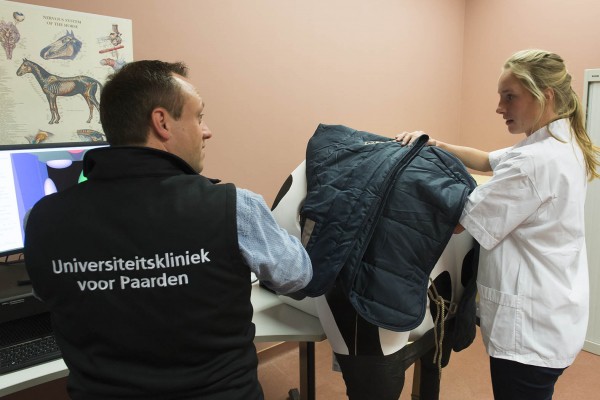Students practice on Haptic Horse
9 years agoSince recently, the faculty of Veterinary Medicine has been working with an electronic artificial horse, called the Haptic Horse, on which students can practice rectal examinations.
The artificial horse was developed by Professor Sarah Baillie of the University of Bristol for teaching veterinary students. Before working with live horses, they practice examining the internal organs on the artificial one.
Various causes of colic can also be simulated for more advanced students, and there is software for horses and cattle. With the latter, the artificial horse can easily be changed into an artificial cow.
Less discomfort for horses
The use of artificial animals helps get students used to doing an exam, which reduces discomfort for the live practice animals. The students are better prepared once it’s time to work with live animals. It is important for the artificial animal to be as realistic as possible, and technology ensures that it is. Using a robotic hand, students can ‘feel’ virtual organs that have precisely the same shape and resistance as those of a real horse, down to the pulse in the blood vessels.


